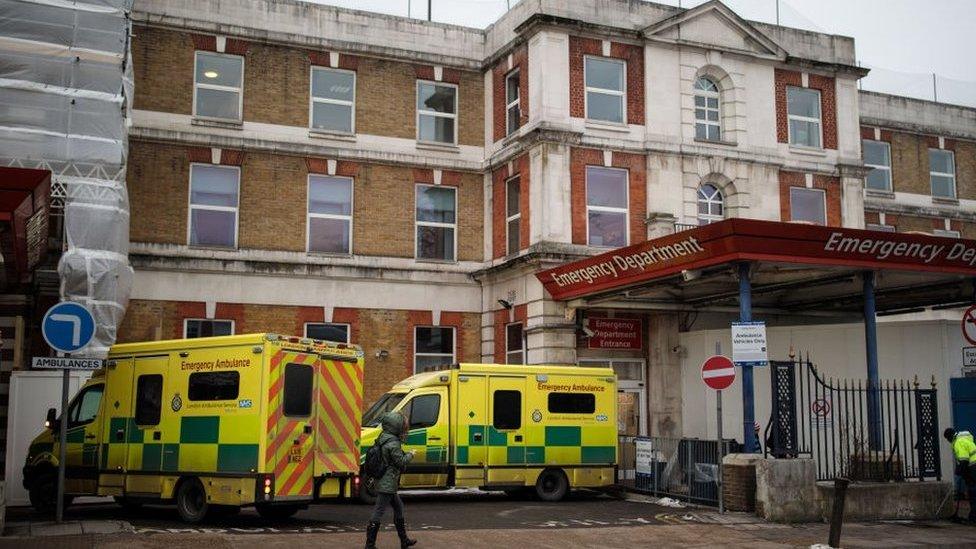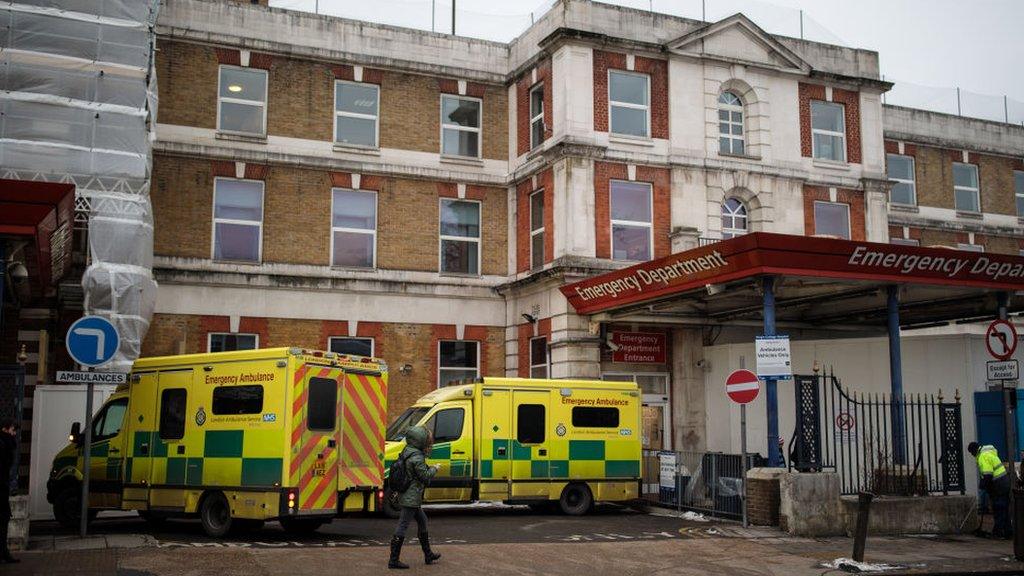Coronavirus: Social distancing plea by family after boy, 13, died
- Published

Ismail Mohamed Abdulwahab died in King's College Hospital early on Monday
The family of a boy, 13, who died after testing positive for coronavirus have pleaded with the public to follow social distancing rules to protect the NHS and save lives.
Ismail Mohamed Abdulwahab, from Brixton, south London, died in hospital on Monday.
Ismail, who had no underlying health conditions, was described as a "gentle and kind" boy.
He tested positive for Covid-19 on Friday, his family said.
"We are all praying at this difficult time for all the people affected by this Covid-19 virus and we wish everybody speedy recovery," Ismail's family said in a statement.
"We also wanted to reiterate the need for people to listen to government guidance.
"So please, do everything you can to ensure that we adhere to social distancing; that people stay at home as much as they possibly can, to protect the NHS and save lives."
Ismail's death was confirmed by the NHS, which stated he was among patients with no known underlying health condition who had died after testing positive for Covid-19.
It is understood he died after suffering a cardiac arrest.
Family friend Mark Stephenson, who was speaking on behalf of the boy's mother and six siblings, said there would not be a post-mortem examination.

A SIMPLE GUIDE: How do I protect myself?
AVOIDING CONTACT: The rules on self-isolation and exercise
LOOK-UP TOOL: Check cases in your area
MAPS AND CHARTS: Visual guide to the outbreak
VIDEO: The 20-second hand wash

On Tuesday Dr Nathalie MacDermott, clinical lecturer at King's College London, said Ismail's death "highlights the importance of us all taking the precautions we can to reduce the spread of infection in the UK and worldwide".
"While chronic underlying medical conditions are known to result in worse outcomes in Covid-19 infection, we have heard of cases of younger individuals with no known medical problems succumbing to the disease," she said.
"It is essential that we undertake research to determine why a proportion of deaths occur outside of the groups expected to succumb to infection, as it may indicate an underlying genetic susceptibility of how the immune system interacts with the virus."
- Published31 March 2020
